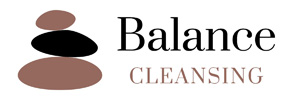Aromatherapy, the therapeutic use of aromatic plant extracts and essential oils, has ancient origins that span across various civilizations. This history of aromatherapy delves deep into its storied history, from ancient practices to its modern resurgence.
Ancient Civilizations and Their Profound Relationship with Aromatic Oils
Throughout history, aromatic oils have played a special role in many cultures. Not just pleasant to smell, these oils were also important for health, spirituality, and community. Today, as we reflect on their timeless appeal, it’s clear that their benefits go beyond just a delightful fragrance.
Ancient Egypt
Often dubbed as the cradle of aromatherapy, the land of the Pharaohs exhibited a profound affinity for aromatic oils. Essential oils weren’t just luxury items but integral components of their daily rituals. From the grand ceremonies in the temples of Luxor to the intricate processes of mummification, aromatic compounds held paramount importance. The ancient Egyptians, valuing the therapeutic attributes of these oils, incorporated them into their medicines and cosmetics. They even documented their uses in the famous Ebers Papyrus, a medical text detailing various formulations using aromatic ingredients.
Ancient Asia and the Mediterranean
Across the vast stretches of Asia and the Mediterranean, the legacy of aromatic oils is equally impressive. Ancient Chinese, Greeks, and Romans were not mere passive users but keen enthusiasts and researchers. For instance, in China, they were often incorporated into traditional medicine, harmonizing the balance of Yin and Yang. In contrast, the Greeks learned and assimilated knowledge about aromatics from their Egyptian counterparts, leading figures like Hippocrates to advocate for their therapeutic benefits. The Romans, on the other hand, infused their baths and perfumes with these oils, reveling in their aromatic ambiance.
The Mesopotamian & Indus Valley Civilizations
The ancient cultures of Mesopotamia and the Indus Valley, though often overshadowed by their Egyptian, Greek, and Roman counterparts, have their own aromatic tales to tell. Archaeological excavations have unearthed clay tablets detailing the usage of essential oils in these regions. They not only used these oils for their medicinal properties but also as trade commodities, linking the aromatic world of the East to the West.
The ancient civilizations’ reverence for aromatic oils wasn’t just about their pleasant scents. It was a joining of health, spirituality, and societal values. These oils bridged cultures, propagated knowledge, and whispered tales of antiquity that resonate even today.
Modern Evolution and Resurgence of Aromatherapy: A Deeper Dive
The world of aromatherapy, although deeply rooted in ancient practices, has undergone a significant evolution and resurgence in contemporary times. As societies became more industrialized and technologically advanced, the need for natural and holistic remedies gained traction, leading to the revival of this ancient art.
Rediscovery and Modern Research
In the past century, with the advancement of scientific research methodologies, there was a renewed interest in understanding the properties and benefits of essential oils. Scientists and researchers delved deeper into the chemical compositions of these oils, unveiling the science behind their therapeutic effects.
Integration into Modern Healthcare
Today, aromatherapy is not limited to home remedies or spa treatments. Many hospitals and healthcare facilities are now recognizing its benefits. Patients undergoing stress, anxiety, or pain are often exposed to aromatic compounds to aid in relaxation and mental well-being.
The Consumer Market Boom
The commercial aspect of aromatherapy has witnessed an exponential rise. A multitude of products, from essential oil diffusers to aromatic candles, flood the market. These products cater to a consumer base that seeks natural alternatives for relaxation, skincare, and general well-being.
Holistic Health and Wellness Movement
The global shift towards holistic health has played a pivotal role in aromatherapy’s resurgence. People are more inclined to integrate mind, body, and spirit wellness practices into their daily routines, with aromatherapy playing a significant role.
Sustainability Concerns
With the growth of the aromatherapy industry, there has also been a call for sustainable and ethical sourcing of aromatic plants. The industry is now moving towards more eco-friendly practices, ensuring that the extraction of these precious oils does not harm the environment.
Conclusion
Aromatherapy, with its origins in the sacred temples of ancient Egypt, has transcended time, from its ancient roots to its prominence in today’s spas and wellness centers. This evolution underscores the unwavering faith in nature’s aromatic healing powers and epitomizes society’s ongoing pursuit of natural and holistic health remedies. Once a hallmark of ancient civilizations, aromatherapy now seamlessly intertwines with modern society, symbolizing the harmonious blend of the past and present.
Sources
- stadlerform.com – The history of aromatherapy – then and now
- ifaroma.org – History of Aromatherapy
- amazon.com – Aromatherapy: An A-Z: The Most Comprehensive Guide to …
- mountsinai.org – Aromatherapy Information | Mount Sinai – New York
- amazon.com – The Ultimate Guide to Aromatherapy: An Illustrated …
- scientificamerican.com – Do Essential Oils Work? Here’s What Science Says

0 Comments